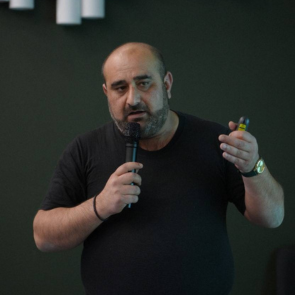International groups stand in solidarity with Armenian environmental and human rights defenders facing defamation and criminalisation
In December 2023, a number of local online media and social media pages started targeting some organisations for their environmental work. They wrote that it was unclear who commissioned their bio-monitoring studies in mining-affected communities, that they might be sharing their data with Azerbaijan to be used against Armenia, and suggested that the National Security should investigate them to address these concerns.
The defamatory attacks and hate speech on social media intensified in January after the publication of a statement raising concerns around the controversial Amulsar mining project, which was signed by 118 Armenian civil society organisations and 57 affected citizens. The project, after being on hold for several years, has now received backing from the government, that on January 18 received a share in the mining company Lydian.
Local communities have been strongly opposing the Amulsar mining project and speaking out against its serious environmental, health, and socio-economic impacts. But the government and the company, instead of addressing these concerns, have been pushing forward the project at all costs and have been trying to silence critical voices. Human rights defenders denouncing the harmful impacts have been facing threats, attacks, smear campaigns and criminalisation.
In January, following the joint statement about the Amulsar mine, several environmental human rights defenders and their organisations have again been targeted with hate speech and defamation on social media. The recurring narrative is that they want to hinder Armenia’s economic growth and that they are somehow affiliated with Azerbaijan.
Moreover, in one of the articles published after the release of the statement, the Deputy Minister of the Ministry of Territorial Administration and Infrastructure was quoted saying that ‘there are public organisations whose activities we do not understand whose mill they are pouring water into’ and that the government was looking into the matter. Although the Minister did not mention any specific organisation or human rights defender, this statement is extremely worrying as it implies that environmental defenders might be placed under investigation.
Mark Fodor, coordinator of the Defenders in Development campaign at the Coalition for Human Rights in Development, said: ‘This public smear campaign, taking place with explicit support from government officials, is completely unacceptable: it puts a target on the backs of people working for the protection of the environment and communities. All actors looking to support the development of a sustainable future for Armenia should immediately condemn these attacks, and speak out in support of environmental and human rights defenders.’
To stifle dissent, mining companies in Armenia have often criminalised environmental and human rights defenders, as well as journalists, through the use of the so-called ‘strategic litigation against public participation’ (SLAPP). For example, since 2018, Lydian – the mining company developing the Amulsar mine – has filed a series of lawsuits against the volunteers of the local civil society group Armenian Environmental Front, community members, and other environmental and human rights defenders. Among the defenders targeted, there are Nazeli Vardanyan (lawyer and director of the Armenian Forests NGO) and Tehmine Yenokyan (environmental defender and journalist, who has also faced another lawsuit from Zangezur Copper-Molybdenum Combine in 2022 and 2023).
In another recent case, on 9 February 2024, the president of the Centre for Community Mobilization and Support (CCMS) and human rights defender Oleg Dulgaryan received a letter from Zangezur Copper-Molybdenum Combine (ZCMC), the largest mining company in the country. In the letter, the company accused him of defamation and demanded a compensation of one million Armenian drams (approximately EUR 2300), as well as a public retraction of the statements allegedly defaming the company.
Nina Lesikhina, policy officer at CEE Bankwatch Network, said: ‘To identify and mitigate environmental and social risks, international financial institutions require public consultations on the projects they fund. But if human rights defenders and communities face restricted civic space and fear retaliation, they can’t meaningfully engage with the lenders and their clients. Civic space restrictions can jeopardise the participatory approach and increase the risk of project non-compliance and cancellation. In May, the European Bank for Reconstruction and Development will hold its annual meeting in Yerevan, including a civil society programme. If the retaliation against Armenian environmental and human rights defenders doesn’t stop, this event is at risk.’
Ryan Schlief, Executive Director of the International Accountability Project, said: ‘Civil society and rights defenders in Armenia have long performed an integral role facilitating an exchange of information among companies, governments and communities and protecting human and environmental rights in the country. The mounting threats and intimidation have a rippling effect across all Armenian civil society groups, who were already facing severe limitations to their critical work, and risk jeopardising any consultations with communities on development decisions that affect their lives.’
Previous reprisals in the context of the Amulsar mine
Since construction works started in 2011, dozens of local activists have been harassed, smeared, threatened and criminalised by the company. The company has been systematically deploying Strategic Lawsuits Against Public Participation (SLAPPs) as a tactic to silence project opponents, and especially against those who were reporting cases of alleged corruption. Lydian has filed more than 20 cases, mostly in 2018 and 2019, and most of them are still ongoing. Through defamation lawsuits, it has been demanding people retract their criticism and seeking excessive financial compensation for the damages caused to its reputation.
Dozens of activists have been sued for social media posts or comments during meetings, two media outlets for publishing news stories about the project, two members of parliament for their speeches during parliamentary meetings. In some cases, judges also suspended the bank accounts of activists accused by the company. Social media has been systematically used to harass activists, damage their reputations, and generate strong pressure to silence them. Women human rights defenders were also targeted with offensive and sexist remarks.
Signatories
CEE Bankwatch Network
Defenders in Development campaign
Front Line Defenders
International Accountability Project
Nesehnuti


